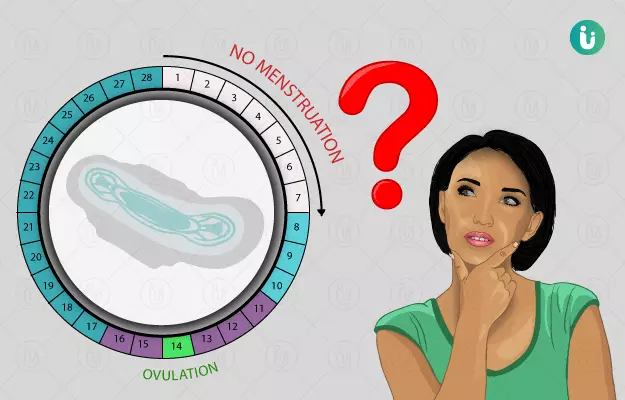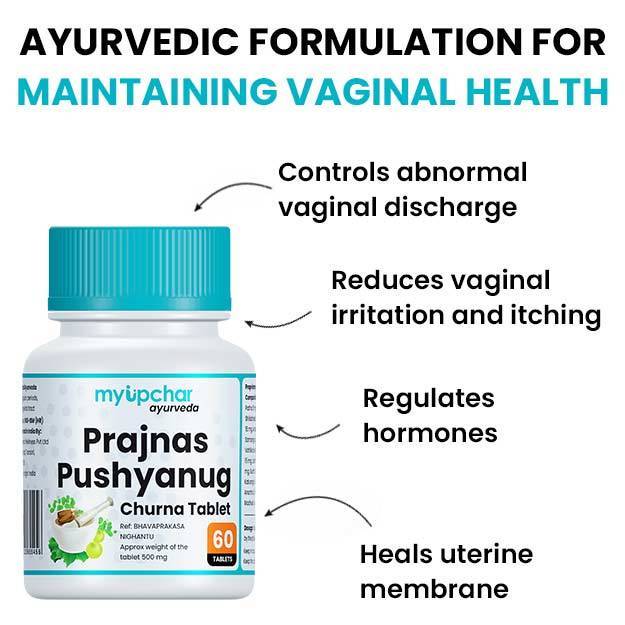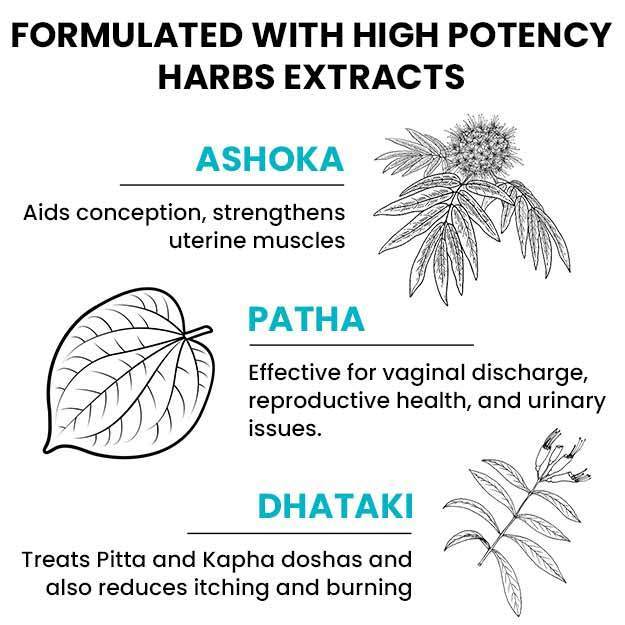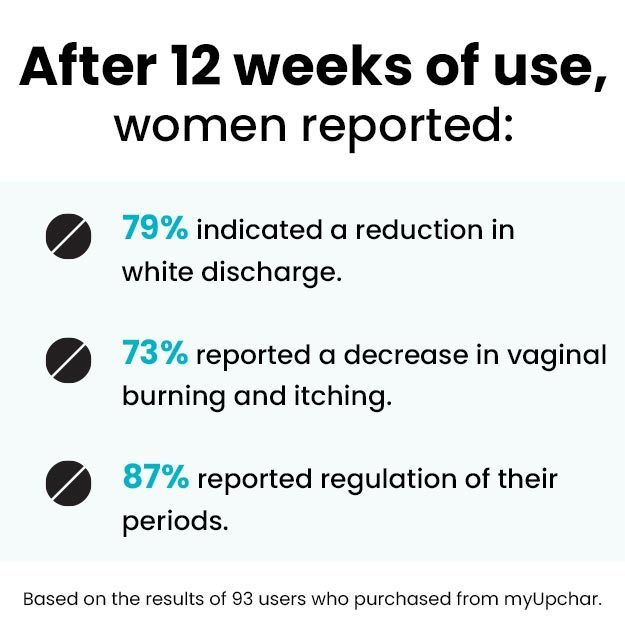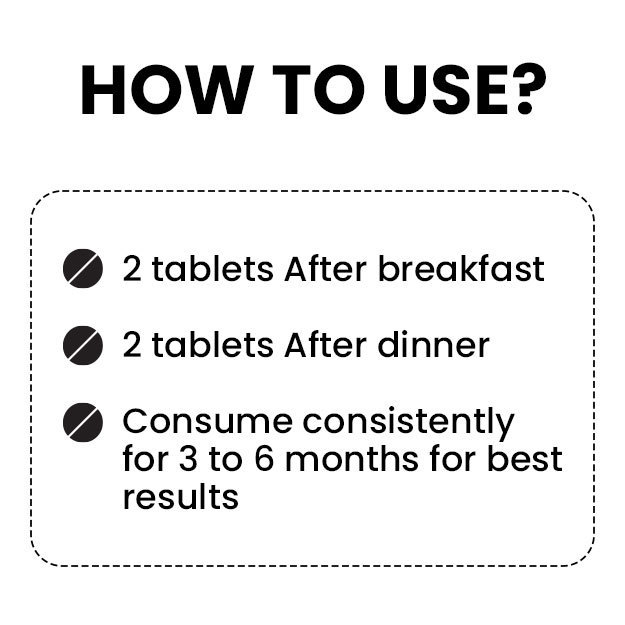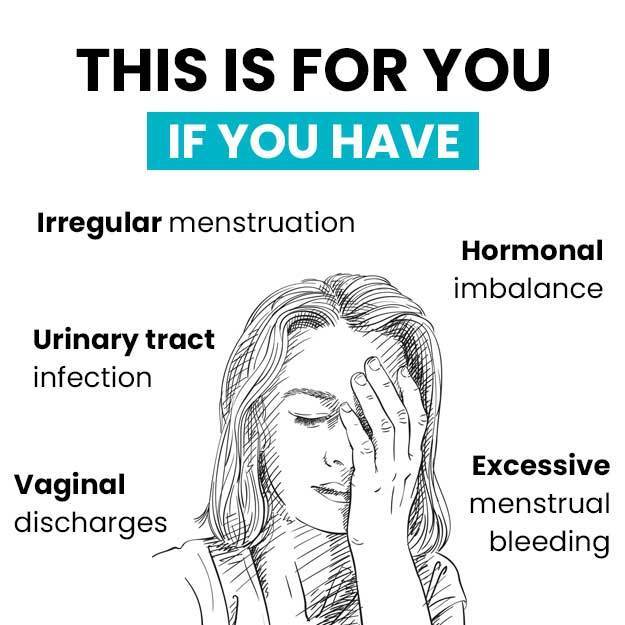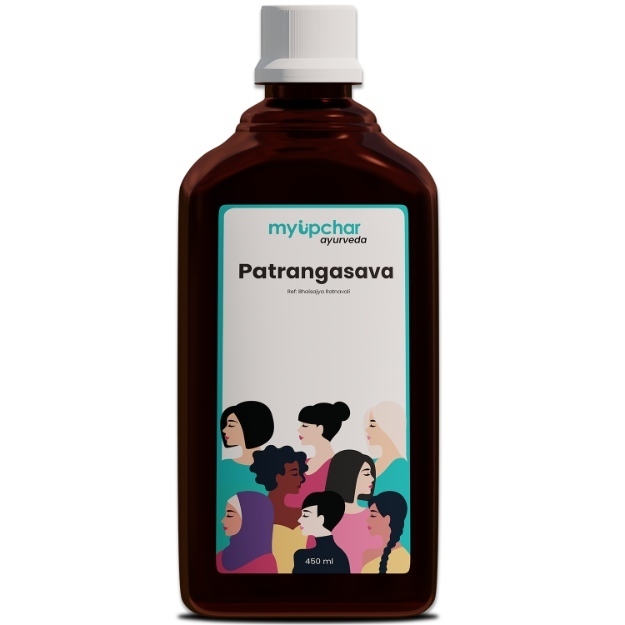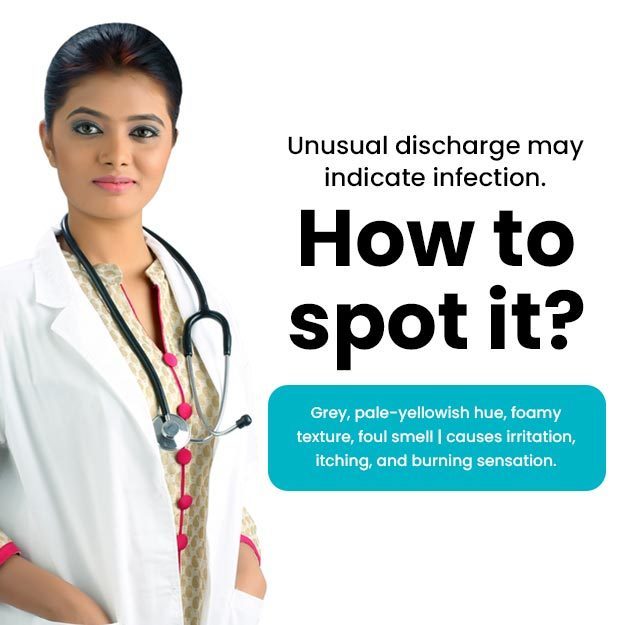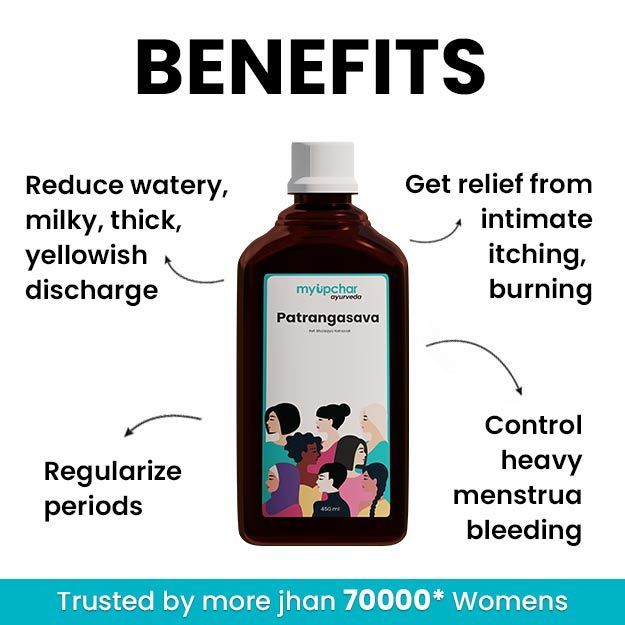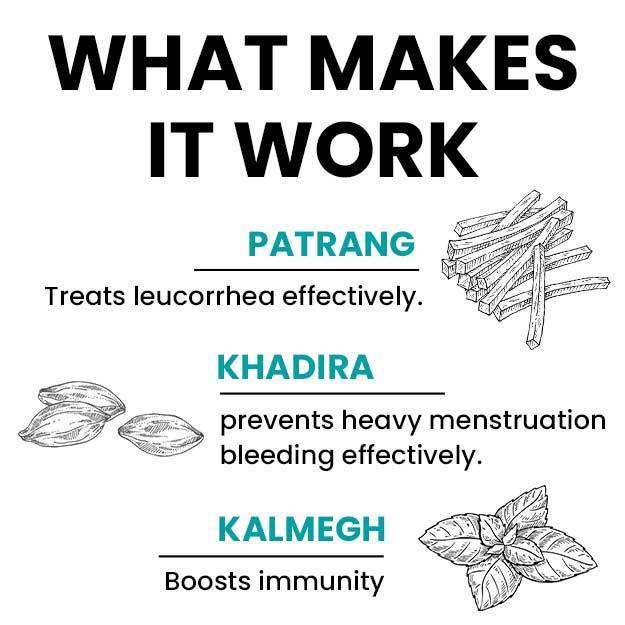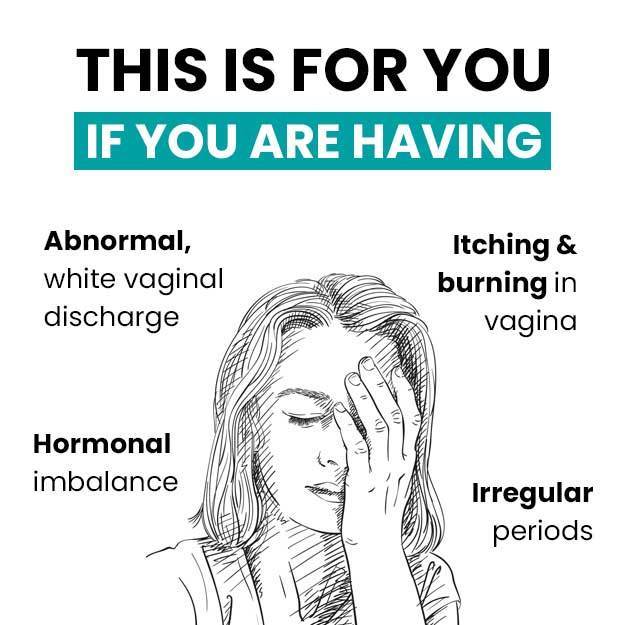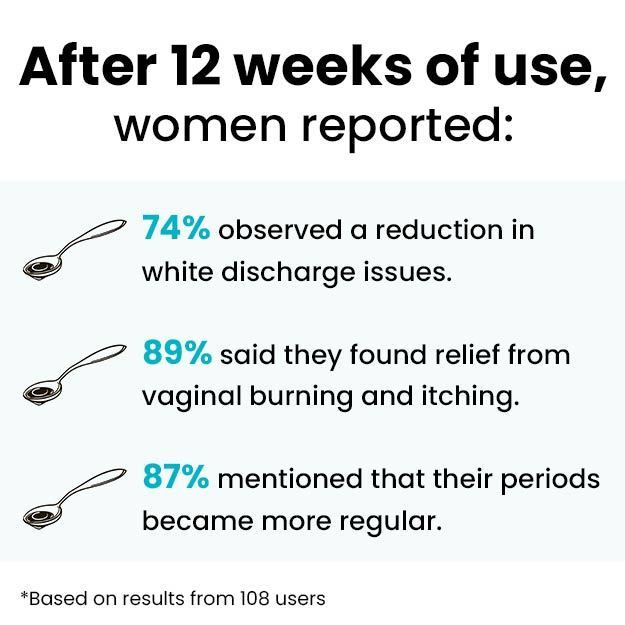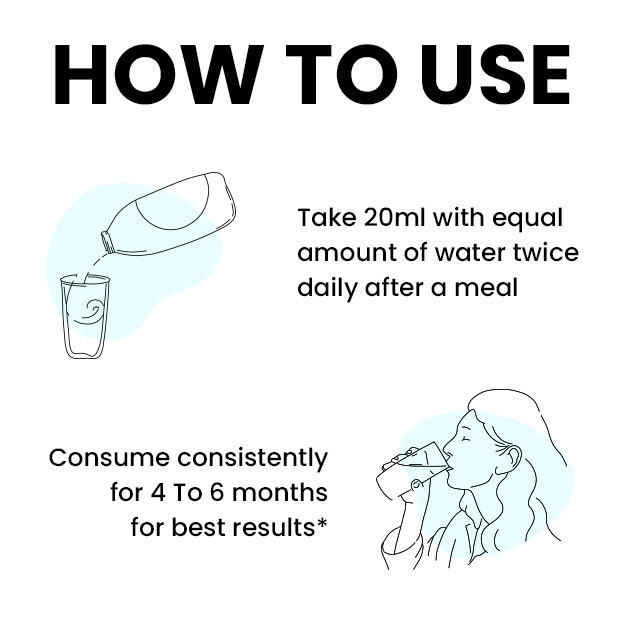Have you ever wondered why your menstrual cycle might be acting a bit unpredictable? When periods are consistently missed or infrequent, medically termed oligomenorrhea, it can be a significant indicator of your reproductive health. This guide aims to provide a clear understanding of what constitutes missed or infrequent periods, their various causes, the accompanying symptoms to watch for, and the range of available treatments. Gaining this knowledge is important not only for addressing current concerns but also for preventing potential long-term health complications.
- What Is Oligomenorrhoea?
- What Are The Symptoms Of Missed Or Infrequent Periods?
- Key Symptoms of Altered Menstrual Cycles
- Causes Of Missed Or Infrequent Periods?
- Natural Life Stages
- Hormonal Imbalances
- Lifestyle Factors
- Medical Conditions and Medications
- Study On The Impact Of Missed Periods On Health
- Treatments For Missed Or Infrequent Periods
- Diet To Prevent Missed Periods
- Prevention Of Missed or Infrequent Periods?
- Complications Of Missed Or Infrequent Periods
- When To Seek Help?
- FAQ
- Summary
What Is Oligomenorrhoea?
Oligomenorrhea is a medical term for infrequent menstrual periods. This means a woman's menstrual cycles are longer than usual. While a typical menstrual cycle ranges from 21 to 35 days, with oligomenorrhea, cycles are longer than 35 days, or a woman might experience fewer than nine periods in a year.
It's important to understand that oligomenorrhea is not a disease itself, but rather a symptom that can indicate various underlying health conditions or lifestyle factors.
(Read More: Periods (menstruation): what is it, symptoms, tips)
What Are The Symptoms Of Missed Or Infrequent Periods?
Missed or infrequent periods are primarily defined by the absence of menstruation when expected, or by menstrual cycles that are significantly longer than the typical 21 to 35 days. While the core symptom is the altered bleeding pattern itself, a range of other signs can accompany these changes, often pointing to the underlying cause.
Key Symptoms of Altered Menstrual Cycles
The most direct indicators of missed or infrequent periods are:
- Missed Periods: This is the most apparent sign, where your period simply doesn't start when it's due. This can range from a single skipped period to several months without menstruation, a more severe condition known as amenorrhea.
- Extended Cycles: If the time from the beginning of one period to the start of the next consistently goes beyond 35 days.
- Reduced Frequency Annually: Having fewer than nine periods over a year.
- Unpredictable Bleeding: Your periods might become highly irregular, making it difficult to anticipate when they will occur.
Associated Symptoms
Beyond the changes in your bleeding pattern, other symptoms often emerge, usually due to the hormonal imbalances or health conditions that lead to missed or infrequent periods:
- Signs of Hormonal Imbalance: These can include new or worsening acne, increased facial or body hair (hirsutism), thinning hair on the scalp, unexplained weight gain or difficulty losing weight, hot flashes, and reduced sex drive. Mood swings and breast tenderness can also occur.
- Difficulty Conceiving: If you're trying to get pregnant, irregular or absent ovulation will make conception more challenging.
- Other General Symptoms: You might also experience headaches, persistent fatigue, or pelvic pain. In some cases, if not related to breastfeeding, a milky discharge from the nipples might occur, indicating high prolactin levels.
While many factors, including stress, diet, and exercise, can temporarily affect your menstrual cycle, it's always a good idea to consult a healthcare professional if you consistently experience missed or infrequent periods, especially if these symptoms are accompanied by other concerning changes. They can help determine the cause and guide you toward appropriate management or treatment.
Causes Of Missed Or Infrequent Periods?
Missed or infrequent periods can be caused by a wide range of factors, from natural life stages to underlying medical conditions and lifestyle choices. Understanding these causes is crucial for determining the appropriate course of action.
(Read More: Best Time To Get Pregnant)
Natural Life Stages
Several phases in a woman's life naturally involve changes in menstrual regularity:
- Puberty (Adolescence): It's very common for periods to be irregular during the first few years after they start. The body is still establishing its hormonal rhythm, and cycles can be unpredictable.
- Pregnancy: A missed period is often the first and most common sign of pregnancy. During pregnancy, menstruation ceases.
- Breastfeeding: The hormone prolactin, which is essential for milk production, can suppress ovulation and thus delay the return of periods, especially with exclusive breastfeeding.
- Perimenopause and Menopause: As a woman approaches menopause (typically between ages 45 and 55), her ovaries begin to produce less estrogen, leading to fluctuating hormone levels and increasingly irregular periods before they stop entirely.
- Postpartum: After childbirth, it can take some time for the menstrual cycle to return to normal, even if not breastfeeding.
Hormonal Imbalances
Hormones play a central role in regulating the menstrual cycle. Any imbalance can lead to missed or infrequent periods:
- Polycystic Ovary Syndrome (PCOS): This is a very common hormonal disorder characterized by an imbalance of reproductive hormones. Women with PCOS often have higher levels of androgens (male hormones), which can interfere with ovulation, leading to irregular or absent periods, along with other symptoms like acne and excess hair growth.
- Thyroid Disorders: Both an overactive thyroid (hyperthyroidism) and an underactive thyroid (hypothyroidism) can disrupt the hormones that control the menstrual cycle, causing irregularities.
- High Prolactin Levels (Hyperprolactinemia): Elevated levels of prolactin, a hormone produced by the pituitary gland, can suppress other reproductive hormones, leading to infrequent periods or their complete absence. This can sometimes be caused by a non-cancerous tumor on the pituitary gland (prolactinoma).
- Primary Ovarian Insufficiency (POI): Also known as premature ovarian failure or premature menopause, this occurs when the ovaries stop functioning normally before the age of 40, leading to a decline in estrogen production and irregular or absent periods.
- Cushing's Syndrome: A condition where the body produces too much cortisol, a stress hormone, which can affect the balance of other hormones and disrupt the menstrual cycle.
- Congenital Adrenal Hyperplasia: A genetic disorder affecting the adrenal glands' ability to produce certain hormones, which can impact menstrual regularity.
(Read More: Hormonal Imbalance symptoms, causes, treatment, medicine)
Lifestyle Factors
Daily habits and environmental influences can significantly impact the menstrual cycle:
- Stress: High levels of physical or emotional stress can affect the hypothalamus, a part of the brain that regulates the hormones involved in menstruation. Chronic stress can lead to delayed or missed periods.
-
Weight Fluctuations:
-
Low Body Weight: Being significantly underweight (e.g., due to eating disorders like anorexia or bulimia, or intense athletic training) can disrupt hormonal signals necessary for menstruation.
-
Obesity: Being overweight or obese can also lead to hormonal imbalances, particularly affecting insulin and estrogen levels, which can result in irregular periods.
-
- Excessive Exercise: Very intense or prolonged physical activity, especially in athletes, can stress the body and suppress the hormones needed for regular periods.
- Dietary Deficiencies: Inadequate nutrition or restrictive diets can lead to hormonal imbalances that affect the menstrual cycle.
- Sleep Disturbances: Irregular sleep patterns can affect your body's natural rhythms, including hormone regulation.
Medical Conditions and Medications
Several other medical issues and certain medications can cause missed or infrequent periods:
- Hormonal Contraceptives: Birth control pills, patches, injections, implants, and hormonal IUDs can intentionally alter your cycle, often making periods lighter, less frequent, or even absent. It can also take some time for periods to return to normal after stopping these methods.
- Chronic Illnesses: Conditions like uncontrolled diabetes, celiac disease, or certain autoimmune diseases can affect overall health and, in turn, menstrual regularity.
- Pelvic Inflammatory Disease (PID): An infection of the female reproductive organs, often a complication of untreated sexually transmitted infections, which can lead to inflammation and irregular bleeding.
- Asherman's Syndrome: This involves the formation of scar tissue inside the uterus or cervix, often due to previous gynecological procedures (like D&C after a miscarriage), which can obstruct menstrual flow.
- Certain Medications: Besides hormonal contraceptives, some antipsychotics, antidepressants, blood thinners, chemotherapy drugs, and anti-epileptic medications can affect the menstrual cycle.
- Uterine Fibroids or Polyps: While often associated with heavy or painful periods, large or numerous fibroids or polyps can sometimes affect menstrual regularity.
- Rare Tumors: Very rarely, tumors of the ovaries, adrenal glands, or pituitary glands can release hormones that disrupt the menstrual cycle.
(Read More: Contraceptive pills: how to use, benefits and side effects)
Study On The Impact Of Missed Periods On Health
Article, titled "Impact of Irregular Menstruation on Women's Health," provides a comprehensive review of the topic. It defines both normal and irregular menstruation, discusses various types of irregularities, their prevalence, and associated risk factors and causes. Information regarding the specific writer and publication date was not available in the provided text.
Irregular menstruation, characterized by cycle lengths less than 21 days or more than 35 days, often accompanied by abnormal blood flow, is linked to a range of significant health issues. These include metabolic syndrome, coronary heart disease, type 2 diabetes mellitus, rheumatoid arthritis, anemia, osteoporosis, and psychological problems. Furthermore, it can lead to impaired quality of life, infertility, and an increased risk of pregnancy-related hypertensive disorders, as well as adverse obstetric and neonatal outcomes.
The prevalence of irregular menstrual cycles varies globally, with reported rates ranging from 5% to 35.6%. Common causes include hormonal changes, polycystic ovary syndrome (PCOS), the use of birth control pills, and thyroid dysfunction. Modifiable risk factors such as obesity, stress, and smoking also play a significant role. Normal menstruation typically begins between 11 and 14 years of age, lasts up to 7 days, and occurs every 21 to 45 days. Irregularities encompass changes in cycle length, blood flow, and duration, with specific types like secondary amenorrhea, oligomenorrhea, and dysmenorrhea being defined. Environmental factors, age, weight, physical activity, and lifestyle choices can all influence menstrual regularity.
The study emphasizes that early diagnosis and timely treatment of irregular menstrual cycles are critical. Such interventions are crucial for reducing infertility rates and mitigating the risk of developing other serious health complications associated with these irregularities.
In conclusion, irregular menstrual cycles are a common concern among women and are strongly associated with various diseases and medical conditions. The findings highlight the importance of recognizing and addressing menstrual irregularities to prevent long-term health consequences.
Treatments For Missed Or Infrequent Periods
Treatments for missed or infrequent periods are highly personalized, as they depend entirely on the underlying cause. A healthcare professional will first diagnose the reason for the irregular cycles before recommending a course of action. The approaches often overlap and can be combined for comprehensive care.
(Read More: PCOS and bloating: symptoms, causes, tips)
Lifestyle Modification
Lifestyle changes are often the first line of treatment, especially when factors like stress, weight, or exercise are contributing to irregular periods. These are fundamental for overall health and hormonal balance.
- Weight Management: Both being significantly underweight or overweight can disrupt the hormonal balance necessary for regular menstruation. Achieving and maintaining a healthy Body Mass Index (BMI) through a balanced diet and regular, moderate exercise can significantly improve cycle regularity.
- Stress Reduction: Chronic stress can directly impact the hypothalamus, the part of the brain that regulates the menstrual cycle. Implementing stress-management techniques such as mindfulness, meditation, yoga, deep breathing exercises, or engaging in hobbies can help restore hormonal balance.
- Balanced Exercise: While exercise is beneficial, excessive or overly intense physical activity can suppress hormone production and lead to missed periods (often seen in athletes). Reducing the intensity or volume of training can help normalize periods in such cases. Conversely, a lack of physical activity can contribute to weight gain and insulin resistance, which can also disrupt cycles.
- Nutritional Support: A balanced diet rich in whole foods, fruits, vegetables, lean proteins, and healthy fats is crucial for overall health and hormone regulation. Addressing any nutritional deficiencies or eating disorders (with professional help) is vital.
Adequate Sleep: Ensuring 7-9 hours of quality sleep each night supports overall hormonal balance and can contribute to a more regular menstrual cycle. Establishing a consistent sleep schedule can also be beneficial.
Medical Treatments
Medical treatments are prescribed by a doctor after a diagnosis and often involve medications or specific procedures to address the root cause.
- Thyroid Medication: If an underactive (hypothyroidism) or overactive (hyperthyroidism) thyroid is the cause, medication (e.g., levothyroxine for hypothyroidism) will be prescribed to normalize thyroid hormone levels, which usually restores menstrual regularity.
- Insulin-Sensitizing Agents: For women with Polycystic Ovary Syndrome (PCOS) who also have insulin resistance, medications like metformin can improve how the body uses insulin. This can lead to more regular ovulation and, consequently, more predictable periods.
- Androgen-Blocking Medications: In some cases of PCOS where high androgen (male hormone) levels are causing symptoms like excess hair growth and severe acne along with irregular periods, medications that block androgen effects might be used.
- Dopamine Agonists: If high prolactin levels (hyperprolactinemia) are the issue, medications such as bromocriptine or cabergoline can lower prolactin, often leading to the return of regular periods.
- Fertility Medications: If irregular periods are due to anovulation (lack of ovulation) and a woman is trying to conceive, fertility drugs like clomiphene citrate or letrozole may be prescribed to stimulate the ovaries to release an egg.
- Surgical Interventions: Surgery is less common but may be necessary in specific situations. Examples include the removal of certain benign tumors (like a large prolactinoma) that affect hormone production, or the removal of scar tissue inside the uterus (Asherman's Syndrome) that is obstructing menstrual flow.
(Read More: Women fertility drugs - Benefits and Side Effects)
Hormonal Therapies
These are a specific type of medical treatment designed to regulate the menstrual cycle by directly adjusting hormone levels.
- Hormonal Birth Control (Oral Contraceptives, Patches, Rings, Injections): This is a very common and effective treatment. These methods provide a consistent dose of synthetic hormones (estrogen and progestin) that override the body's natural cycle. This leads to predictable withdrawal bleeding (a "period") and can help regulate cycles for various conditions, including PCOS, by suppressing androgen production and protecting the uterine lining.
- Progestin Therapy: If the issue is primarily a lack of progesterone, a doctor might prescribe progestin for a short course (e.g., 7-10 days). This induces a withdrawal bleed by causing the uterine lining to shed, preventing excessive buildup (endometrial hyperplasia) which can be a risk with infrequent periods.
- Estrogen Therapy: In cases of very low estrogen (e.g., in primary ovarian insufficiency or extremely low body weight), estrogen therapy might be considered, often in combination with progestin, to protect bone health and potentially regulate cycles.
Natural Treatments
Natural treatments often involve significant lifestyle adjustments and may be recommended in conjunction with medical treatments or as a primary approach for mild cases where the underlying cause is not severe.
- Herbal Remedies (Use with Caution): Certain herbs are anecdotally used for menstrual regularity, but scientific evidence is often limited, and they can interact with medications. Examples include Vitex agnus-castus (chasteberry), black cohosh, or dong quai. Always consult a healthcare professional before using herbal remedies, especially if you are on other medications.
- Acupuncture: Some individuals find acupuncture helpful in managing stress and potentially regulating menstrual cycles, particularly in cases of PCOS or stress-induced irregularities. Research on its effectiveness is ongoing.
Home Remedies
Home remedies are typically complementary measures that can support overall well-being and might help regulate periods, especially when lifestyle factors are at play. It's crucial to understand that scientific evidence for many of these is limited, and they should not replace professional medical advice, particularly for persistent or severe issues.
- Ginger Tea: Some people find ginger tea helpful for menstrual issues, primarily for pain relief. Its direct effect on regulating infrequent periods is not strongly scientifically proven.
- Cinnamon: Limited studies suggest cinnamon may help improve insulin sensitivity and potentially regulate menstrual cycles in women with PCOS. It can be incorporated into a diet.
- Warm Compress/Heat: Applying a warm compress or taking a warm bath can help relax muscles and ease stress, which might indirectly support menstrual regularity if stress is a factor.
- Hydration: Staying well-hydrated is essential for overall bodily function. While not a direct treatment, it supports general health, which is beneficial for hormonal balance.
It's crucial to remember that self-treating missed or infrequent periods without understanding the cause can be risky. Always consult a healthcare professional for a proper diagnosis and personalized treatment plan.
(Read More: Boost Your Immune System with Ginger Water)
Diet To Prevent Missed Periods
While no specific "diet" guarantees the prevention of missed or infrequent periods, optimizing your nutritional intake and making healthy dietary choices can significantly support overall hormonal balance and reproductive health. This, in turn, can help promote regular menstrual cycles. It's especially important to consider diet in conjunction with other lifestyle factors like stress management and exercise.
Here's a breakdown of dietary principles and foods that can help:
Maintain a Healthy Weight
Both being significantly underweight and overweight/obese can disrupt hormone production and lead to irregular periods.
- For Underweight Individuals: Focus on consuming enough calories and nutrient-dense foods to reach a healthy weight. This means incorporating healthy fats (avocados, nuts, seeds, olive oil), lean proteins, and complex carbohydrates.
- For Overweight/Obese Individuals: Gradual, sustainable weight loss through a balanced diet can significantly improve menstrual regularity, particularly in conditions like Polycystic Ovary Syndrome (PCOS). Focus on portion control and nutrient-dense foods.
Prioritize Whole, Unprocessed Foods
A diet rich in whole foods provides the necessary vitamins, minerals, and fiber for optimal bodily function, including hormone regulation.
Fruits and Vegetables: Aim for a wide variety of colorful fruits and vegetables. They are packed with antioxidants, vitamins, and fiber.
- Leafy Greens (Spinach, Kale): Excellent sources of iron, magnesium, and B vitamins, crucial for energy and hormone health.
- Berries: Rich in antioxidants and Vitamin C.
- Cruciferous Vegetables (Broccoli, Cauliflower, Cabbage): Can help support healthy estrogen metabolism.
Whole Grains: Choose complex carbohydrates like oats, brown rice, quinoa, and whole-grain bread over refined grains. They provide sustained energy and fiber, which helps regulate blood sugar levels and supports gut health, both important for hormone balance.
Lean Proteins: Include sources like chicken, fish, legumes, beans, tofu, and eggs. Protein is essential for hormone production and helps stabilize blood sugar.
Healthy Fats: Incorporate monounsaturated and polyunsaturated fats. These are vital for hormone production and reducing inflammation.
- Omega-3 Fatty Acids: Found in fatty fish (salmon, mackerel, sardines), flaxseeds, chia seeds, and walnuts. They have anti-inflammatory properties and can support overall hormonal health.
- Avocados, Nuts, Seeds, Olive Oil: Good sources of healthy fats.
Focus on Key Nutrients
Certain vitamins and minerals play specific roles in reproductive health and menstrual regulation:
- Iron: Essential, especially for women, to prevent iron-deficiency anemia, which can contribute to fatigue and affect cycle regularity. Found in red meat, fortified cereals, leafy greens, and lentils. Pair with Vitamin C to enhance absorption.
- Zinc: Involved in hormone production and regulation, including estrogen and progesterone. Good sources include nuts, seeds, legumes, and lean meats.
- Magnesium: Helps with muscle relaxation, can reduce cramps, and is involved in various bodily functions that support hormonal balance. Found in leafy greens, nuts, seeds, whole grains, and dark chocolate.
- Vitamin D: Crucial for overall hormonal health and immune function. Sunlight is the primary source, but it's also found in fortified dairy, fatty fish, and eggs. Supplementation may be necessary.
- B Vitamins (especially B6, B12, Folate): Play roles in energy metabolism and neurotransmitter production, which can influence mood and hormonal balance. Found in whole grains, leafy greens, lean meats, and eggs.
(Read More: From Calcium to Zinc: Mineral Benefits)
Manage Blood Sugar Levels (Especially for PCOS)
If irregular periods are due to PCOS, managing insulin resistance through diet is key:
- Low Glycemic Index (GI) Foods: Choose foods that cause a slower, more gradual rise in blood sugar (e.g., most vegetables, whole grains, legumes, and lean proteins).
- Pair Carbohydrates with Protein and Fiber: This slows down glucose absorption and helps prevent sharp blood sugar spikes.
- Regular Meals and Snacks: Eating consistent meals can help keep blood sugar stable throughout the day.
- Limit Refined Carbohydrates and Sugary Foods: These can lead to rapid blood sugar spikes and contribute to insulin resistance. This includes white bread, white pasta, sugary drinks, candies, and highly processed snacks.
Limit or Avoid Certain Foods/Substances
Some dietary components can negatively impact menstrual regularity for some women:
- Excessive Caffeine: High caffeine intake can sometimes affect hormone levels and increase stress, potentially contributing to irregularities. Moderation is key.
- Excessive Alcohol: Alcohol can disrupt liver function, which is involved in hormone metabolism, and can also lead to dehydration.
- Highly Processed Foods, Saturated Fats, and Trans Fats: These can contribute to inflammation and hormonal imbalances. Limit fried foods, processed snacks, and excessive amounts of red meat.
- Excessive Sodium: Can lead to water retention and bloating, which can exacerbate premenstrual symptoms.
Prevention Of Missed or Infrequent Periods?
In India, 68% of women report reduced working efficiency due to a menstrual disorder. The most common reason is unhealthy eating habits, which lead to weight gain. This, in turn, leads to hormonal imbalance and paves way for a disturbed menstrual cycle, which upon prolongation leads to oligomenorrhoea. Women in rural areas of the country are not an exception at all. They lack knowledge about the menstrual cycle and the problems associated with it. They are also surrounded by myths related to menstrual health.
Awareness programmes in rural areas can educate young women about care to be taken to prevent menstrual disorders. Some easy tips given below can help in preventing oligomenorrhoea. These are:
(Read more: Period myths)
- Avoid prolonged use of hormonal pills.
- Exercise or do yoga regularly to stay fit and avoid the risk of too much weight gain or weight loss.
- Creating and conducting health programs for inculcating awareness in adolescent girls regarding menstrual problems in rural India can help in preventing the condition and its quick diagnosis.
- Female athletes need to increase their calorie intake, as in this case, being bulimic (a person with an eating disorder) can lead to oligomenorrhoea.
- Manage stress by meditating, doing yoga, and following other relaxation methods. You may also take help from a professional psychologist or psychiatrist to cope with stress.
- Monitor your sugar and thyroid levels. (Read more: How to check blood sugar levels at home)
- A higher risk of PCOS suggests a higher risk of oligomenorrhoea. PCOS, in most cases, is hereditary and hence preventing it becomes difficult.
(Read more: What to eat and what to avoid if you have PCOS)
Complications Of Missed Or Infrequent Periods
Missed or infrequent periods (oligomenorrhea) are not just an inconvenience; if left unaddressed, they can lead to a range of complications that affect various aspects of a woman's health. These complications arise either directly from the irregular cycles themselves or from the underlying conditions causing them.
Here are the main complications associated with missed or infrequent periods:
Infertility
Irregular or Absent Ovulation: The most direct complication for women wishing to conceive. Regular periods are a sign of regular ovulation (the release of an egg from the ovary). If periods are infrequent or absent, it often means ovulation is irregular or not happening at all (anovulation), making it very difficult to get pregnant. Conditions like Polycystic Ovary Syndrome (PCOS) are a common cause of both infrequent periods and anovulatory infertility.
Endometrial Hyperplasia and Endometrial Cancer
- Uterine Lining Buildup: When periods are infrequent, the lining of the uterus (endometrium) does not shed regularly. This allows the endometrial lining to become excessively thick (endometrial hyperplasia) due to prolonged exposure to estrogen without the balancing effect of progesterone.
- Increased Cancer Risk: Endometrial hyperplasia, if left untreated, can progress to endometrial cancer (cancer of the uterine lining). This is a significant long-term risk, especially for women with conditions like PCOS where estrogen levels may be continuously elevated without sufficient progesterone to trigger a monthly shed.
Osteoporosis
- Low Estrogen Levels: Many causes of missed or infrequent periods, such as primary ovarian insufficiency, excessive exercise, or very low body weight, involve consistently low estrogen levels. Estrogen is crucial for maintaining bone density.
- Bone Weakening: Prolonged periods of low estrogen can lead to reduced bone mineral density (osteopenia) and eventually osteoporosis, increasing the risk of fractures later in life. This is particularly concerning for younger women whose bone mass is still developing.
(Read More: Beyond the Basics: Your Definitive Guide to the Copper T)
Cardiovascular Disease and Metabolic Issues
- Associated Conditions: Irregular periods, especially when caused by conditions like PCOS, are strongly linked to an increased risk of metabolic syndrome, Type 2 diabetes, high blood pressure, and unhealthy cholesterol levels.
- Increased Heart Disease Risk: These metabolic disturbances are significant risk factors for cardiovascular disease, including heart attacks and strokes. Research suggests that women with irregular menstrual cycles may have a higher cumulative risk for these heart problems.
Psychological and Emotional Impact
- Stress and Anxiety: The unpredictability of irregular periods can cause significant emotional distress, anxiety, and frustration. Women may worry about their fertility, their general health, or the inconvenience of irregular bleeding.
- Impact on Quality of Life: Persistent menstrual irregularities can affect a woman's self-esteem, body image, and social interactions, leading to a diminished quality of life.
Other Potential Complications (Depending on Cause)
- Acne and Hirsutism: If the cause is a hormonal imbalance leading to excess androgens (like in PCOS), women may experience persistent acne and increased facial or body hair growth.
- Anemia: While infrequent periods might seem to reduce blood loss, underlying conditions causing them can sometimes lead to very heavy bleeding when a period does occur, potentially resulting in iron-deficiency anemia over time.
- Hypothyroidism symptoms: If an underactive thyroid is the cause, complications like chronic fatigue, weight gain, constipation, and cold intolerance can persist.
- Pituitary Tumor complications: In rare cases where a pituitary tumor (like a prolactinoma) is the cause, complications can include headaches and vision problems if the tumor grows large enough to press on surrounding structures.
When To Seek Help?
It's always a good idea to consult a healthcare professional if you have concerns about your menstrual cycle. While occasional irregularities can be normal, persistent or significant changes warrant a medical evaluation. Here are key situations when you should seek help for missed or infrequent periods:
Suspected Pregnancy: If you are sexually active and have a missed period, take a pregnancy test. If it's positive, or if you suspect pregnancy despite a negative test (e.g., you have other pregnancy symptoms), see a doctor for confirmation and prenatal care.
Three or More Missed Periods in a Row (Amenorrhea): If you've had periods in the past but have now missed three or more consecutive periods (and are not pregnant, breastfeeding, or in perimenopause), this is a strong indication to see a doctor.
Fewer Than Nine Periods in a Year (Oligomenorrhea): If your cycles are consistently longer than 35 days, resulting in less than nine periods over a 12-month period.
No Period by Age 16: If you are 16 years old or older and have not yet started menstruating. Also, if you are 14 or older and haven't shown any signs of puberty (like breast development or pubic hair) and haven't started your period.
Sudden or Significant Change in Your Normal Pattern: If your previously regular periods suddenly become very irregular, much lighter, or much heavier, or if the duration changes significantly.
Periods Accompanied by Other Concerning: Beyond simply missed or infrequent periods, certain accompanying symptoms warrant immediate medical attention. Be alert for new or worsening excessive hair growth on areas like your face, chest, or back (known as hirsutism), or persistent and severe acne. Any unexplained weight changes, whether a significant gain or loss that isn't intentional, should also prompt a visit to your doctor. Persistent and unexplained fatigue is another red flag, as is milky discharge from your nipples when you are not breastfeeding. If you experience severe pelvic pain that is intense and significantly impacts your daily life, or if you have unusual headaches or vision changes combined with your irregular periods, seek medical advice. Additionally, if you're having hot flashes or night sweats but are not in the typical perimenopausal age range, it's a sign to get checked. For those trying to conceive, difficulty getting pregnant due to irregular periods is a clear reason to seek help. Finally, any signs of infection, such as fever, chills, unusual or foul-smelling vaginal discharge, or severe pain, should lead to prompt medical consultation.
Bleeding Between Periods or After Sex: Any bleeding or spotting that occurs outside of your regular menstrual period is a red flag.
Bleeding After Menopause: If you have already gone through menopause (12 consecutive months without a period) and experience any bleeding.
(Read More: Abortion: types, causes, pills, procedure, side effects)
Pro Tip:
Keeping a record of your periods (dates, duration, flow, and any accompanying symptoms) can be very helpful to share with your doctor during your appointment. This information provides valuable clues for diagnosis.
FAQ
Below are some frequently askes questions:
Can I Get Pregnant If I Miss Periods?
Yes, absolutely. While irregular periods can make it more challenging to get pregnant because ovulation (the release of an egg) might not happen on a predictable schedule, it doesn't mean you're infertile. If you are having sex, you can still ovulate, just not consistently. This means you might ovulate at an unexpected time, and if you have unprotected sex, pregnancy is possible.
A missed period is, in fact, often the first sign of pregnancy. If you've had unprotected sex and your period is late or missed, it's always advisable to take a pregnancy test to rule out this possibility.
Can Weight Cause Missed Periods
Yes, both being significantly underweight and overweight can cause missed or infrequent periods.
- Underweight: When your body fat percentage is too low, or you're not consuming enough calories, your body may interpret this as a state of starvation or stress. This can disrupt the delicate hormonal signals from the brain (hypothalamus and pituitary gland) to the ovaries, leading to a halt in ovulation and, consequently, missed periods (a condition called hypothalamic amenorrhea). This is common in athletes or individuals with eating disorders.
- Overweight or Obese: Excess body fat can also disrupt hormonal balance. Fat cells produce estrogen, and too much estrogen can interfere with ovulation. Additionally, obesity is closely linked to insulin resistance, which is a key feature of Polycystic Ovary Syndrome (PCOS)—a common cause of irregular periods.
Can Any Disease Cause Missed Periods?
Yes, many diseases and medical conditions can cause missed or infrequent periods. These often involve hormonal imbalances or affect the reproductive organs directly. Some common examples include:
-
Polycystic Ovary Syndrome (PCOS): This is a very common hormonal disorder where the ovaries may not release eggs regularly, leading to irregular or missed periods, along with other symptoms like acne and excess hair growth.
-
Thyroid Disorders: Both an underactive thyroid (hypothyroidism) and an overactive thyroid (hyperthyroidism) can disrupt the hormones that regulate the menstrual cycle.
-
Hyperprolactinemia: This is when there are abnormally high levels of prolactin, a hormone produced by the pituitary gland. High prolactin can suppress ovulation and cause missed periods. It can sometimes be due to a benign pituitary tumor (prolactinoma).
-
Primary Ovarian Insufficiency (POI): Also known as premature ovarian failure, this occurs when the ovaries stop functioning normally before the age of 40, leading to a decline in estrogen and irregular or absent periods.
-
Cushing's Syndrome: A condition involving high levels of the stress hormone cortisol, which can disrupt other hormones.
-
Asherman's Syndrome: This is a condition where scar tissue forms inside the uterus, often after a D&C (dilation and curettage) procedure, which can prevent the normal shedding of the uterine lining.
-
Chronic Illnesses: Conditions like uncontrolled diabetes, celiac disease, or certain autoimmune diseases can also impact menstrual regularity.
(Read More: Pubic Hair Removal: Safety Tips and Best Practices You Need)
Can Gym Cause Infrequent Periods?
Yes, intense or excessive exercise, particularly in the gym, can cause infrequent or missed periods. This is especially true if combined with insufficient calorie intake or low body fat. When the body is under significant physical stress, it can enter a "survival mode," suppressing the production of reproductive hormones. This condition is often referred to as exercise-induced hypothalamic amenorrhea or as part of the Female Athlete Triad (which also includes low energy availability and low bone density). Moderating exercise intensity and ensuring adequate nutrition are crucial for athletes to maintain regular cycles.
Can Sex Cause Infrequent Periods?
No, the act of sexual intercourse itself does not directly cause infrequent periods. The menstrual cycle is regulated by hormones, not by sexual activity.
However, there's a crucial indirect link:
- Pregnancy: If unprotected sex leads to conception, then a missed period is the first sign of pregnancy. Your period will cease during pregnancy.
- Stress: While sex can be a stress reliever for some, for others, factors surrounding sex (like performance anxiety, relationship stress, or fear of pregnancy/STIs) can cause stress. As discussed below, stress can definitely affect your period.
So, while sex doesn't inherently make your periods infrequent, the outcome of sex (pregnancy) or the psychological impact surrounding it (stress) certainly can.
Can Stress Cause You To A Late Period?
Yes, absolutely. Stress is a very common cause of late or missed periods.
When you experience significant physical or emotional stress, your body releases stress hormones like cortisol. These hormones can interfere with the hypothalamus, a part of your brain that plays a central role in regulating your menstrual cycle. The hypothalamus communicates with the pituitary gland and ovaries, and if this communication is disrupted by stress, it can delay or even temporarily halt ovulation. Without ovulation, your period will be late or missed. This is your body's way of prioritizing essential survival functions over reproduction during perceived stressful times.
(Read More: Tubectomy: when is it needed, procedure, recovery)
Summary
Missed or infrequent periods are defined by menstrual cycles exceeding 35 days or having fewer than nine periods within a year. While pregnancy is a common reason for a missed period, numerous factors can contribute to this condition. These include natural life stages such as adolescence and perimenopause, as well as lifestyle influences like significant weight fluctuations, intense exercise, and high stress levels. Various medical conditions, such as Polycystic Ovary Syndrome (PCOS), thyroid disorders, and hyperprolactinemia, are also frequent causes.
Beyond just the altered bleeding pattern, certain accompanying symptoms warrant medical attention. These include new or worsening acne and excessive hair growth, unexplained weight changes, persistent fatigue, nipple discharge when not breastfeeding, severe pelvic pain, headaches or vision changes, hot flashes outside of the typical perimenopausal age, and difficulty conceiving. Ignoring these signs can lead to serious complications such as infertility, an increased risk of endometrial cancer, osteoporosis, and heightened risks for cardiovascular disease and metabolic issues.
Treatment for missed or infrequent periods is highly individualized, depending on the underlying cause. Approaches range from essential lifestyle modifications like weight management, stress reduction, and balanced exercise, to various medical interventions. These include hormonal therapies (such as birth control pills or progestin therapy), medications to address specific underlying conditions (like thyroid medication or insulin-sensitizing agents for PCOS), and in rare cases, surgical procedures. While natural treatments and home remedies can complement medical approaches, they should not replace professional medical advice. Prompt consultation with a healthcare provider is crucial for accurate diagnosis, effective management, and the prevention of long-term health complications associated with irregular menstrual cycles.
Find Obstetrician and Gynaecologist in cities
- Obstetrician and Gynaecologist in Bangalore
- Obstetrician and Gynaecologist in Mumbai
- Obstetrician and Gynaecologist in Ghaziabad
- Obstetrician and Gynaecologist in Chennai
- Obstetrician and Gynaecologist in Pune
- Obstetrician and Gynaecologist in Delhi
- Obstetrician and Gynaecologist in Hyderabad
- Obstetrician and Gynaecologist in New Delhi
- Obstetrician and Gynaecologist in Gwalior
- Obstetrician and Gynaecologist in Gurgaon
Doctors for Understanding Missed or Infrequent Periods: A Comprehensive Guide

Dr. Ayushi Gandhi
Obstetrics & Gynaecology
4 Years of Experience

Dr. Anjali
Obstetrics & Gynaecology
23 Years of Experience

Dr.Anuja Ojha
Obstetrics & Gynaecology
20 Years of Experience

Dr. Geeta Kulkarni
Obstetrics & Gynaecology
7 Years of Experience
References
- Karki, et al. Menstrual Pattern and Disorders among Female Students of Kathmandu Medical College Menstrual Pattern and Disorders
- Arezoo Moini Jazani et al. Herbal Medicine for Oligomenorrhea and Amenorrhea: A Systematic Review of Ancient and Conventional Medicine. BioMed Research International Volume 2018
- Michael T.S. Polycystic ovarian syndrome: Diagnosis and management Clin Med Res. 2004 Feb; 2(1): 13–27. PMID: 15931331
- Ashwini Bhalerao-Gandhi, Rajani Vaidya, Femida Bandi. Managing Gynecological Problems in Indian Adolescent Girls-A Challenge of 21st Century. Obstetrics & Gynecology International Journal
- Rausch M.E. Predictors of pregnancy in women with polycystic ovary syndrome J Clin Endocrinol Metab. 2009 Sep; 94(9): 3458–3466. PMID: 19509098
- Lynnette K.N,. Cushing's syndrome: Update on signs, symptoms and biochemical screening. Eur J Endocrinol. 2015 Oct; 173(4): M33–M38. PMID: 26156970
- Taraneh Gharib Nazem, Kathryn E. Ackerman. The Female Athlete Triad. Sports Health. 2012 Jul; 4(4): 302–311. PMID: 23016101
- Marimuthu K et al. Int J Reprod Contracept Obstet Gynecol. 2017 Jun;6(6):2222-2225
- Kulshreshtha B, Pahuja I, Kothari D, Chawla I, Sharma N, Gupta S, Mittal A. Menstrual cycle abnormalities in patients with prolactinoma and drug-induced hyperprolactinemia. Menstrual cycle abnormalities in patients with prolactinoma and drug-induced hyperprolactinemia. Indian J Endocr Metab 2017;21:545-50
- Shabnam O et al. A study on menstruation of Indian adolescent girls in an urban area of South India Journal of Family Medicine and Primary Care, 2018; 7(4): 698–702. PMID: 30234040
- Ghose A and Panda P.K. Clinical efficacy of Shatapushpa (Anethum sowa Kurz.) powder in the management of Artava kshaya (oligomenorrhoea) Ayu. 2010 Oct-Dec; 31(4): 447–450. PMID: 22048537
- Trivedi R1, Mishra R.K, Pandya. Role of 'Krishna Tila' and 'Arkapushpa Taila' uttarbasti in the management of Artavakshaya Ayu. 2010 Jan; 31(1): 76–79.
- Juan P et al. Lifestyle modification programs in polycystic ovary syndrome: systematic review and meta-analysis The Journal of Clinical Endocrinology & Metabolism, 2013; 98 (12): 4655–4663, https://doi.org/10.1210/jc.2013-2385.
- Maryam Yavari et al. A neuropsychiatric complication of oligomenorrhoea according to Iranian traditional medicine. Iran J Reprod Med. 2014 Jul; 12(7): 453–458. PMID: 25114666
- Harris H.R et al. Polycystic ovary syndrome, oligomenorrhoea, and risk of ovarian cancer histotypes: Evidence from the Ovarian Cancer Association Consortium. Cancer Epidemiol Biomarkers Prev. 2018 Feb; 27(2): 174–182. PMID: 29141849


